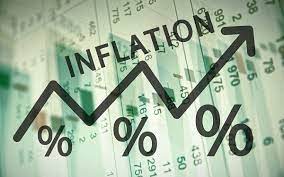Unlike the United States, which has witnessed consumer prices coming down from a peak of 9.1% in June 2022, Nigeria’s inflation remains hot, stubborn and unyielding, according to a Senior Research Analyst at FXTM, Lukman Otunuga
Inflationary pressures are gradually easing across the globe but remain rampant in Africa’s largest economy.
The current annual inflation rate for Nigeria stands at a whopping 22.8 % – its highest since September 2005.
Otunuga said with the inflation beast drawing strength from rising food prices, transportation and import costs, it is forecast to tick even higher for July.
House sports committee assures Nigerians of effective sports growth
African varsities to ECOWAS: Attack on Niger will destabilise education in subregion
He said ultimately, persistent signs of rising inflation may force the Central Bank of Nigeria to act once again at its next policy meeting in September.
He said: “It is worth keeping in mind that the CBN has recently lifted its benchmark rates by 25bp to 18.75% – its fourth consecutive rate hike in 2023.
“While higher rates have the potential to cap and control inflation, it could come at the cost of economic growth which expanded by 2.31% during the first quarter of 2023.”
In the currency space, the Naira took another beating on the black-market exchange last Friday. The local currency slumped to N932 as dollar shortages worsened two months after the CBN adopted a flexible exchange rate regime.
He said: “Should the current themes negatively impacting the Naira remain present, prices may hit N1000 in a matter of time. Such a development will most likely increase the cost of living and squeeze households further in the short to medium term.
“Outside of Nigeria, we have witnessed how higher interest rates have somewhat capped and controlled inflation albeit at a price. For Africa’s largest economy, the key question is when will inflation eventually peak?”

 Join Daily Trust WhatsApp Community For Quick Access To News and Happenings Around You.
Join Daily Trust WhatsApp Community For Quick Access To News and Happenings Around You.


